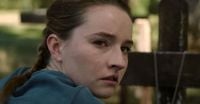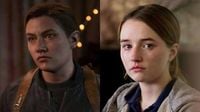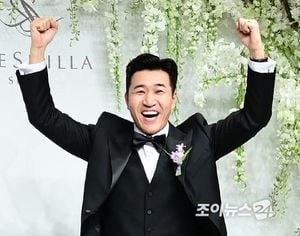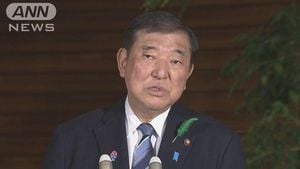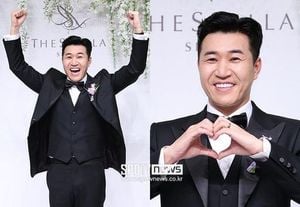The highly anticipated second season of The Last of Us has arrived, and it’s already making waves with its intense storytelling and character development. The latest episode, which premiered on April 20, 2025, not only shocked audiences but also introduced new faces that are crucial to the unfolding drama. Among them is Abby Anderson, played by Kaitlyn Dever, who is at the center of one of the most traumatic moments in the franchise.
Abby, a former member of the Fireflies, is depicted as a complex character driven by a desire for revenge after the death of her father, Jerry Anderson, who was killed by Joel, the protagonist of the previous season. This backstory sets the stage for a gripping narrative that explores themes of loss, vengeance, and moral ambiguity.
In the second season, viewers are introduced to Abby's group of friends from Salt Lake City, known as the Salt Lake Crew. This group includes Manny Alvarez, played by Danny Ramirez; Mel, portrayed by Ariela Barer; Nora Harris, played by Tati Gabrielle; and Owen Moore, portrayed by Spencer Lord. Each character brings their own unique perspective and backstory, enriching the overall narrative.
Abby Anderson, as described by HBO, is "a skilled soldier whose black-and-white view of the world is challenged as she seeks revenge for those she loved." Kaitlyn Dever’s casting has sparked discussions among fans, particularly regarding the differences in physical appearance between the game character and the actress. Despite the concerns, the creators emphasized that talent was the priority in the casting process. "Nothing matters more than talent, and we are thrilled to have an acclaimed artist like Kaitlyn join our family," said co-creators Craig Mazin and Neil Druckmann in a joint statement.
Dever, known for her roles in Justified and Dopesick, expressed her excitement about taking on such a complex role. In an interview, she revealed that Abby is in a state of grief and raw anger, trying to navigate her emotions and the dynamics within her group. "The anger and fury within her are just beginning," Dever stated, hinting at the character's emotional depth.
In addition to Abby, Manny Alvarez, played by Danny Ramirez, is a loyal soldier of the Washington Liberation Front (WLF) and a close friend of Abby. His character is described as "a loyal soldier whose optimistic perspective hides the pain of past wounds and the fear of disappointing his friends when they need him most." Fans of the game will recognize Manny's darker side, especially during intense confrontations.
Mel, portrayed by Ariela Barer, is another key member of the group. A doctor from the WLF, she has a romantic relationship with Owen, adding layers of complexity to the group dynamics. Her character is described as "a young doctor whose commitment to saving lives is challenged by the realities of war and tribalism." This conflict between personal beliefs and the harsh realities of their world is a recurring theme in the series.
Nora Harris, played by Tati Gabrielle, is also part of Abby's team. A former doctor who worked with Dr. Jerry Anderson, her character grapples with the consequences of her past decisions. The description provided by HBO emphasizes her struggle: "A military doctor fighting to come to terms with the sins of the past." Nora’s character adds depth to the storyline, as she navigates her relationship with Abby and the impact of their shared history.
Finally, Owen Moore, portrayed by Spencer Lord, is another critical character in Abby's narrative. An ex-Firefly and soldier of the WLF, Owen's past relationship with Abby complicates his current romance with Mel. His character is described as "a kind man trapped in the body of a warrior, doomed to fight against an enemy he refuses to hate." This internal conflict reflects the broader themes of the series, where characters often face moral dilemmas and the consequences of their actions.
The second episode of the season has already hinted at the group's motivations and their connection to the larger conflict between the WLF and their rivals, the Seraphites. As the story progresses, it becomes clear that Abby and her friends are not merely antagonists but complex characters shaped by their experiences and traumas.
In a broader context, the season is set against the backdrop of a post-apocalyptic world where survival is paramount, and the lines between right and wrong are often blurred. The WLF, a paramilitary group from Seattle, has taken control of the city by overthrowing the oppressive FEDRA, and they are now engaged in a brutal war with the Seraphites, a rival faction. Jeffrey Wright is set to portray Isaac, the leader of the WLF, adding another layer of intrigue to the unfolding drama.
As fans continue to tune in, the series promises to delve deeper into the characters' psyches and the moral complexities of their choices. The adaptation of The Last of Us has garnered praise for its storytelling, with many noting how it navigates the challenges of translating a video game narrative into a television format.
In conclusion, the second season of The Last of Us is not just about survival in a post-apocalyptic world; it’s a profound exploration of revenge, grief, and the human condition. As Abby and her friends navigate their tumultuous journey, viewers are left to ponder the true cost of vengeance and the complexities of morality in a world that has been irrevocably changed.

